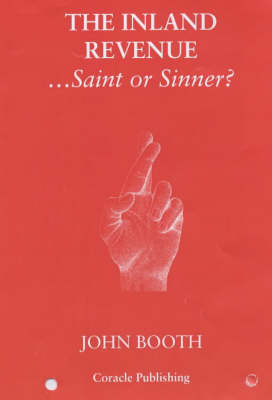This work reviews the Inland Revenue Department from the 1849 statute of creation, and the exercise of its statutory function to collect and manage inland revenues. It is shown that this management stems from the authority of the Consolidated Fund Act of 1816 that created a "Lord High Treasurer of Great Britain", and that it held as an office by Commissioners of HM Treasury, and in 2001 are the First Lord of the Treasury (the prime minister), and the Chancellor of the Exchequer. Junior Lords are also appointed as Treasury Ministers and comprise a Treasury Board that is stated not to meet and that Board decisions are not recorded, and that all are transient political appointees. The interpretations of the Treasury Board are from laws made by Parliament, and with the function of the courts to interpret and construe the legislation, and to tell the nation and Parliament what those laws mean. But it is shown that those interpretations are far from clear with many continuing to interpret the their functions for administrative convenience.
In 1993 a Deputy Chairman of the Board commented on the Revenue's "sound foundations built by the men of yesteryear", but Parliamentary debates, Committees and Commissions reveal a department in continuous turmoil and inconsistency, without a sound legislative base, the Treasury acquiescing to non-statutory practices, and the Revenue claiming that Chancellors do not exercise any statutory authority over the Revenue's administration. The watershed of the report from the 1936 Codification Committee showed that there a morass of non-statutory practices existed that were being perpetuated in the interests of administrative convenience. Successive Chancellors blocked all attempts to debate and enact the recommendations to reform and codify legislation and court rulings, and were frustrated by the Treasury and the Revenue departments. No codification ever took place and the morass of non-statutory practices continued as "secondary legislation" that is expanding and is without an appeals procedure.
A countervailing power was built up by the Parliamentary Commissioner Act in 1967, and case studies show how this power has worked, but is only made possible by the vigilance of frustrated taxpayers, and this book may provide some help in both understanding the tax system, and the procedures to apply the laws with equity and compassion.
- ISBN10 0954239806
- ISBN13 9780954239800
- Publish Date 18 October 2002
- Publish Status Active
- Publish Country GB
- Imprint Coracle Publishing
- Format Paperback
- Pages 300
- Language English
